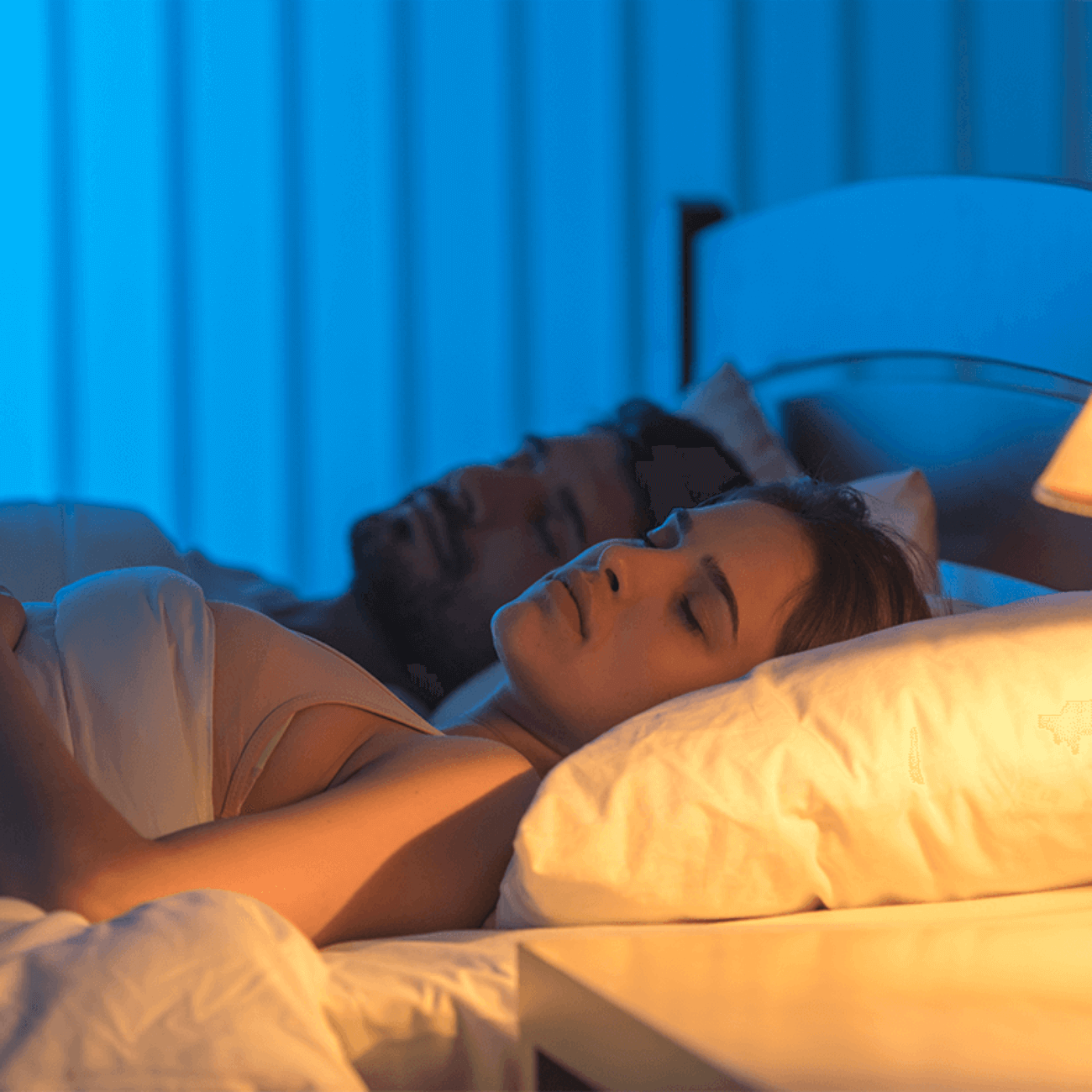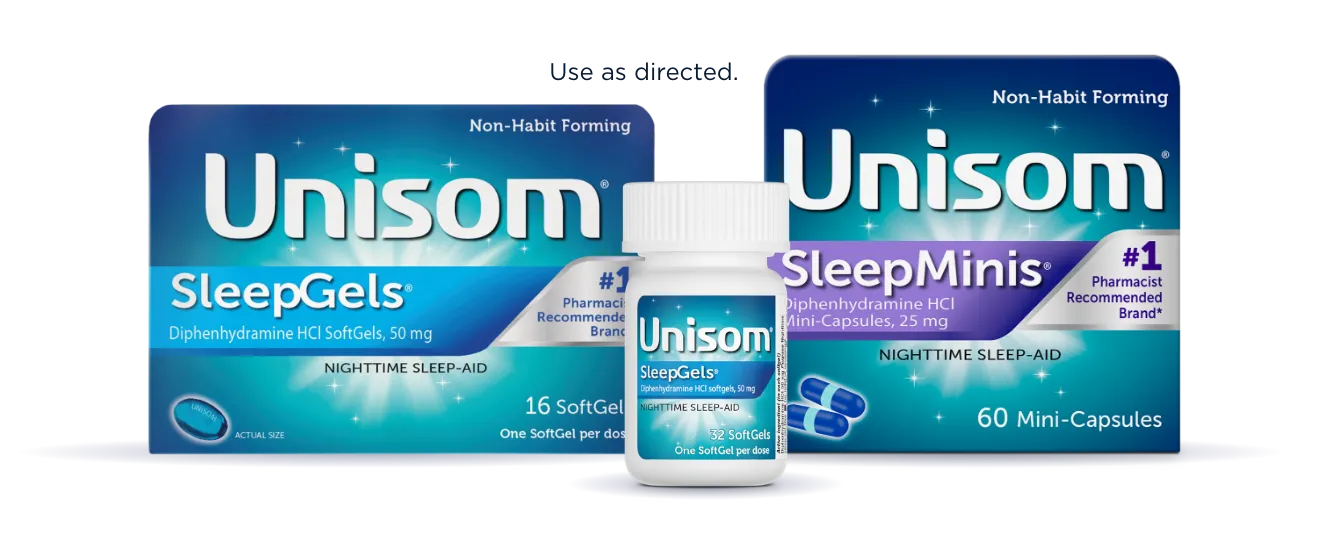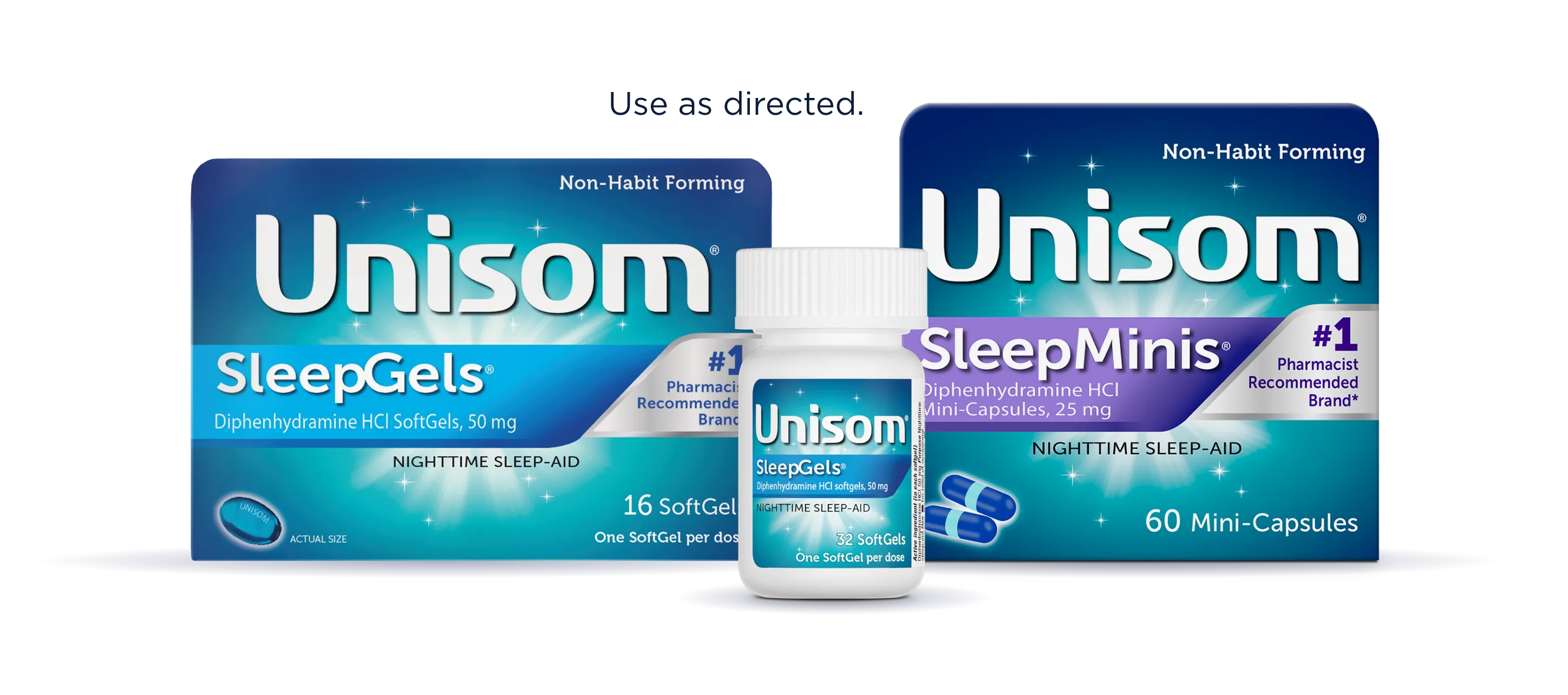Many things can distract you from sleep — especially where you're getting it. Creating a comfortable sleep environment, along with following a relaxing pre-bedtime routine, are key to getting a good night's sleep.
A rhythm-filled day
Your body wants to keep a set schedule for sleeping, eating, and other biological functions. When things are running smoothly, this schedule is synched to a normal 24-hour period — this is referred to as your circadian rhythm.1
Bodies generally do a great job of staying on track, but also rely on external signals like daylight, temperature, even exercise. These are the signals that tell your body to do things like sleep and eat.1

When your biological clock gets out of alignment, over time you run an increased risk of obesity, diabetes, and depression.1 If you are experiencing ongoing issues with sleep, speak with your doctor.
Environmental factors that contribute to sleeplessness
Disruptions to your sleep schedule are unexpected and inevitable. The important part is how you deal with them.
Your body also receives signals when you wind down, while asleep, and when you wake up.
It's inevitable that external factors — like a baby crying at night or your noisy neighbors — can disrupt your sleep environment.
Here are some things that might disrupt your sleep:
- Noise. Extraneous noise can disrupt sleep. That can include your bed partner snoring, urban noises, leaky faucets, barking dogs, or even a creaky bed. Earplugs are a good solution. So are white noise machines, which can mask other sounds.2
- Stimulation. Blue light from electronics can signal that it’s still light out. Try not to use your computer or smartphone, or watch TV, in bed at night.3
- Lights. You might wake up at irregular times because outside light is creeping in. Shut your blinds and dim electronics like phones and digital clocks to keep unwanted
light out.2 - Air circulation. Weather permitting, keep a window open a crack to get some fresh air into your room. You can also try an air purifier or fan if it's too cold to keep a window open.3
- Indigestion. Eating too close to bedtime — including midnight snacks — can upset your stomach and keep you from sleeping soundly.2 Try to eat meals at least two to three hours before bed and keep food out of your bedroom.
Wide awake — way too late
When you get in bed and feel like your wheels won’t stop turning, your brain is still in awake mode and still thinks it’s time to get things done. And when you wake up in the middle of the night and can’t get back to sleep, it could be from any type of disruption.
Here’s a couple of suggestions to get back to sleep:
- Don’t watch the clock. Lying awake and watching the numbers change can create a vicious cycle; the more you worry about not being able to sleep, the harder it is to fall asleep. Plus the light from your clock, phone, or tablet can make you feel more awake.4
- Get comfortable. A full bladder can make you uncomfortable, so hit the bathroom if you need to. Make sure your bedroom is the right temperature and that your pillow and blanket are just the way you like them.4
- Get up and go. Your body needs activity so you’re tired at bedtime. If you haven’t fallen back asleep after about 20 minutes, get out of bed. Sit in a comfy chair in another room, and read a book under soft light.4
- Breathe deep. While your eyes are closed, focus on deep abdominal breathing to relax your muscles and take your mind off stress.5
- Coping with pain. Try and address aches and pains before you hop into bed. If you are experiencing regular discomfort, follow your doctor's advice for alleviating nighttime pain.4
Set up your bedroom for the best sleep
Your bedroom is sleep central. It should be as relaxing and calming as possible.

Here are some ideas to turn it into your own cozy comfort cave:
- Enjoy aromatherapy — certain essential oils like lavender and chamomile can help you relax5
- Try a gentle, relaxing bedtime yoga routine to help you unwind and ease stress5
- Try a sleep app designed to help you drift to sleep5
- Don't stare at a computer or smartphone or watch TV in bed3
- Open a window or try an air purifier to keep fresh air circulating3
- Keep your thermostat on the cooler side when it's time for bed3
Rest assured
Sometimes you just want a little help sleeping. And you can count on Unisom®. It’s the #1 doctor-recommended OTC sleep-aid brand, with a range of options to help you fall asleep and wake up feeling refreshed.
Unisom® SleepGels® contain the histamine blocker diphenhydramine HCl. Blocking histamine production can help you fall asleep faster and stay asleep.
Unisom® SleepTabs® contain doxylamine succinate, which is a clinical-strength histamine blocker that works in a similar fashion to diphenhydramine. Unisom® SleepTabs® can help you fall asleep 33% faster and get a full night's sleep.
Find the Unisom® product that’s right for you.
Professional References
1. National Sleep Foundation, editors. December, 2020, Understanding Circadian Rhythms. National Sleep Foundation (thensf.org/).
2. National Sleep Foundation, editors. May, 2020, 10 Tips for a Better Night’s Sleep. National Sleep Foundation (thensf.org/).
3. American Sleep Association, editors. 2021, Sleep Hygiene Tips. American Sleep Association (sleepassociation.org).
4. John Hopkins Medicine, Editors. 2021, Up in the Middle of the Night? How to Get Back to Sleep. John Hopkins Medicine (hopkinsmedicine.org).
5. American Sleep Association, editors. 2021, Calming Rituals to Help You Fall Asleep. American Sleep Association (sleepassociation.org).
Related articles
†This statement has not been evaluated by the Food and Drug Administration. This product is not intended to diagnose, treat, cure or prevent any disease.
.png)
.png)


